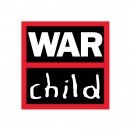Consultant /Assessment for reaching marginalized communities
Terms of Reference
Assessment for reaching marginalized communities in the Gaza Strip
Background
War Child is an independent and impartial international non-governmental organization investing in a peaceful future for children and young people affected by armed conflict. We strive to empower children and young people, while enabling adults to bring about positive and lasting change in the lives of conflict-affected children and young people.
War Child has been working in oPt since 2006, and in the Gaza Strip since 2009 supporting partner community-based organizations (CBOs) through capacity building, improvement of child safe spaces, and psychosocial support. In 2017, War Child intends to assess whether and how this support can be extended to vulnerable communities in the Access Restricted Area (ARA) of Gaza Strip through mobile outreach, psychosocial support, and community-based child protection. Program planning will be informed by an assessment designed to identify child-protection and psychosocial needs and concerns in vulnerable communities in the ARA, based on proximity to War Child’s partner CBOs. Based on a set of community assessments among identified vulnerable communities, War Child will work together with community-based child protection structures (formal or informal and including War Child’s partner CBOs) and provide training and community awareness raising sessions on identified child protection issues. This project will also serve to map and strengthen referral pathways coordinating where possible with local governances, councils and other care/service providers.
Objective of the Assessment
A series of community child protection and psychosocial needs assessments will enable War Child and partners to identify the needs and gaps in vulnerable communities specifically in regards to child protection and psychosocial support. The findings and recommendations from assessments should lead directly to development of project planning for community child protection, psychosocial support, capacity building of community and local structures, and service delivery. Additionally, the findings and recommendations should give a clear understanding of the feasibility of project planning in the ARA, including situational analysis and risk analysis. The assessments will identify and analyze children’s and communities’ needs, asking questions including:
-What vulnerability factors are having an impact on the protection and psychosocial wellbeing of children? From the point of view of community members, caregivers, and children themselves.
-What are the current mechanisms for protecting children in the community? Including formal and informal community mechanisms, service mapping resources for psychosocial and protection related services.
-To whom do children, caregivers and community members turn when a child protection risk is identified?
-To what extent are current community child-protection mechanisms meeting the needs of children within the ARA?
-To what extent are current service providers able to meet the child protection and psychosocial support needs of children within the ARA?
-What gaps exist in the mechanisms identified, and (how) can project partners work together to fill them?
Scope of the Assessment
-Programmatic scope: The assessment is intended to guide the planning and implementation of activities in this project, carried out by War Child and partner organizations. The assessment will focus on community-based child protection mechanisms (existing and proposed), psychosocial needs of children and caregivers, and current and proposed referral pathways, and should lead directly to a practical plan for War Child and partners to commence program interventions in each community.
-Geographical Area: the feasibility analysis should cover the larger ARA area (from Beit Hanoun to Rafah) ; and the community assessments will be carried out in specific communities within the ARA in proximity to partner CBOs (Khan Younis, Bureij, and Beit Hanoun), as identified by War Child.
-Timeframe: The assessment will take place during the last part of November through December 2016.
-Population: The assessment will focus on vulnerable communities within the ARA with limited access to relevant child protection and psychosocial support, care and services.
-Coordination: The assessment must be designed taking into consideration the data already available from the local and international community and coordination bodies.
Guiding Principles
War Child highly values participatory and ethical assessment process. Therefore, the following should be taken into account as guiding principles for the assessment:
-Participatory assessment and bottom-up project design: communities (including children) should not be considered the subjects of assessment processes – rather their active participation must be facilitated by the design of the assessments so they can influence them and benefit from them. Without the participation of these community stakeholders, the assessments themselves will not generate valuable information for project design.
-Utilization-focused: the results of each assessment should be practical and utilization-focused, with the aim to give concrete guidance to the next step of the project.
-Compliance with professional and ethical standards: Inclusion and non-discrimination should be primary considerations: no assessment carried out under War Child’s responsibility or name may exclude people because of their gender or sexuality, age, religious or ethnic background. Participation in the assessment should be voluntary and based on informed consent. Privacy, confidentiality and the best interests of respondents must be respected. In line with the Do No Harm principle, the assessment process should never harm participants physically or psychologically and specific attention should be paid to protection risks. Care must be taken to maintain an approach of neutrality, impartiality and independence and to avoid inflaming social tensions/conflict or endangering community members or staff. Child safeguarding principles (according to the War Child oPt Child Safety Policy) must be taken into consideration throughout the assessment process.
Suggested Methodologies
The assessor will suggest an appropriate assessment methodology that is in line with the objective and scope of the assessment and the guiding principles for this assessment. War Child’s rapid CP and PSS assessment toolkit is also available to guide the assessments. During the choice/design of the assessment methodology, the assessor will make sure that:
-Existing resources are used, such as existing assessments, monitoring data, reports, community action plans, and other secondary materials like evaluations of similar approaches of other (I)NGOs.
-The views and opinions of various community members of various age groups are taken into account (e.g. children, youth, adults and elderly).
-A combination of assessment methods are used, and participatory techniques, such as mapping, diagramming or self-assessments must be incorporated, and assessment findings are triangulated and validated as much as possible.
Roles and Responsibilities
-War Child is responsible for providing input, review and discussion of suggested assessment methodologies, and ultimate selection of communities to be assessed, technical support and “sounding board” during assessment process, review of draft assessments, dissemination of completed assessments.
-The Assessor is responsible for planning logistics of assessment, training of assessment teams, integrating War Child assessment methodology for child protection and psychosocial support, and submitting budget for assessment lifecycle. The Assessor is responsible for the design, implementation, analysis and reporting of the assessments, in liaison with the War Child staff and other partner staff as much as possible.
Deliverables
-A detailed plan for the assessment process, including provisions to ensure child safety and how issues of confidentiality (data collection) and duty of care will be managed, to be presented to War Child before assessment begins.
-An agreed methodology and assessment tool, taking into consideration feedback from War Child and best practices and minimum standards.
-Mapping of relevant child protection and psychosocial support care and service providers, civil society linkage, and referral pathways for each location.
-Finalized assessment report (Including community assessment and feasibility analysis)
Budget & Duration
-The deadline for all deliverables is December 31st, 2016
-The consultancy will be for a maximum of 30 days between November 28th and December 31st 2016
-The consultant will be evaluated upon the details of her/his financial proposal
-The consultant will be paid on production of deliverables, not on a monthly basis
-Number of payments and instalment dates will be agreed between parties upon
signature of the contract
Key skills, technical background, and experience required
Essential:
-Relevant academic qualifications and field experience;
-Knowledge and experience in child protection, psychosocial support, community-based approaches, referral pathways, and case management;
-Knowledge and experience working in oPt, with a focus on vulnerable communities in Gaza Strip;
-Extensive experience in the design and implementation of assessments;
-Excellent analytical and report writing skills;
-Fluency in English and Arabic (both spoken and written);
-Understanding of issues and sensitivities required when working with vulnerable groups;
-Experience with participatory research methodologies, preferably with children;
-Ability to operate independently with minimal supervision.
Desirable:
-Experience of assessing, evaluating or managing child protection and psychosocial support programs;
-Knowledge of and experience of community planning and emergency response planning;
-Experience in training and supervision of assessment teams.
Application Procedure / Expression of Interest
The deadline for submission of expression of interest is November 23rd, 2016, and will consider both individual applicants and group applicants. Only short-listed candidates will be contacted. The expression of interest should include:
-A letter of interest, highlighting the relevant knowledge, skills and experience of the applicant
-Up-to-date CV
-A brief description of proposed methodology and approach, a description of
deliverables, and a timeline.
-A budget with clear description of daily rate (in euros), other costs and total fee.
Contact Details
For more information about the assessments, please contact War Child at [email protected]

Jobs.ps, Ltd. All Rights Reserved.






